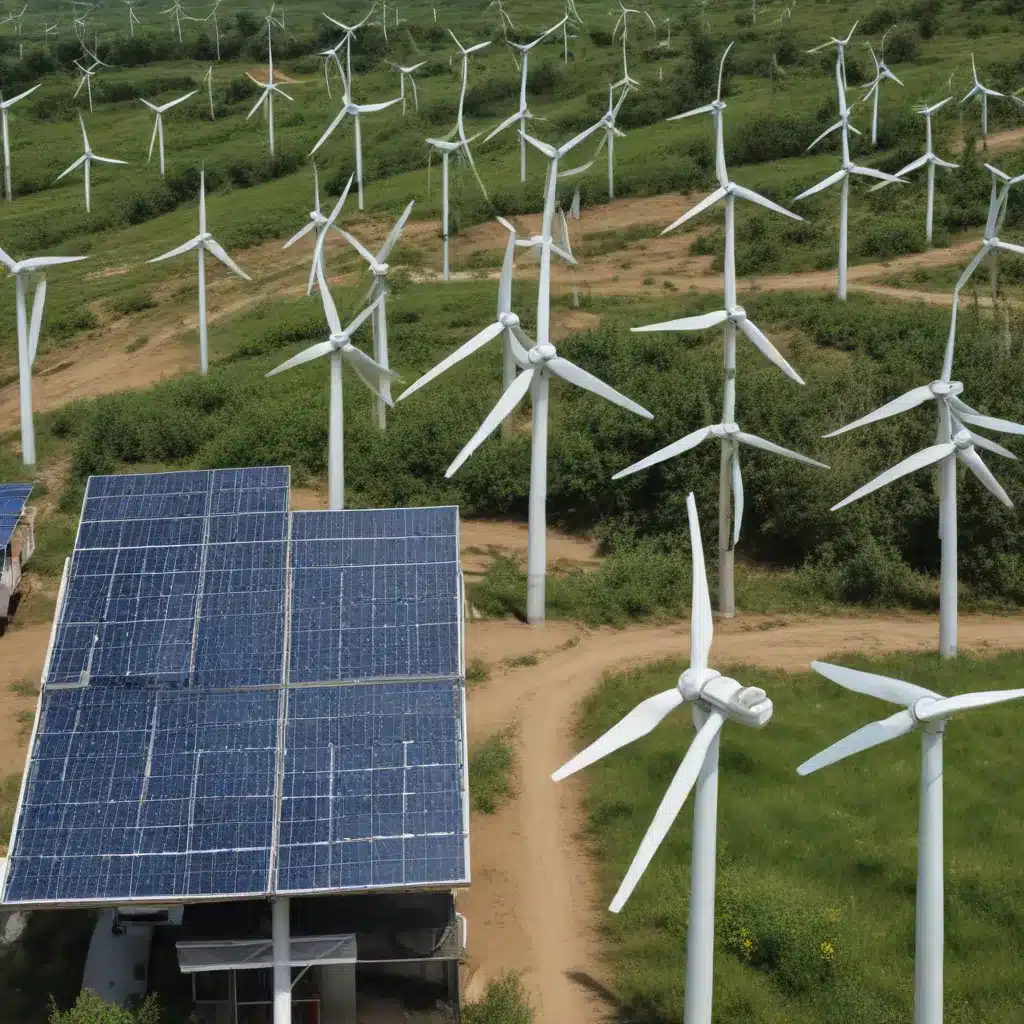
Renewable Energy and the Sharing Economy: Empowering Consumers and Communities
The energy landscape in Europe is undergoing a transformative shift, as the continent accelerates its transition towards clean, renewable sources. This shift not only encompasses technological advancements in fields like wind, solar, and hydrogen, but also a fundamental change in the way energy is generated, distributed, and consumed. Emerging models of the sharing economy are empowering consumers and communities to take an active role in this transition, paving the way for a more decentralized, resilient, and sustainable energy future.
Technological Advancements Driving the Renewable Energy Revolution
Europe has been at the forefront of the renewable energy revolution, with significant investments and policy frameworks driving the rapid expansion of wind and solar power. The continent has seen a surge in offshore wind capacity, with innovative floating turbine technologies enabling the tapping of previously inaccessible deep-water resources. Similarly, the solar sector has witnessed remarkable breakthroughs, from record-breaking efficiency gains in photovoltaic cells to the deployment of large-scale solar farms and rooftop installations.
Alongside these developments, the rise of hydrogen technology has captured the imagination of policymakers and industry leaders alike. Pilot projects across Europe are exploring the potential of green hydrogen, produced through the electrolysis of water using renewable energy sources, to decarbonize hard-to-abate sectors such as heavy industry and long-distance transportation.
The Sharing Economy: Empowering Consumers and Communities
As the renewable energy transition gains momentum, the concept of the sharing economy has emerged as a powerful catalyst for change. This model, which enables the collaborative consumption and exchange of goods and services, is finding a natural fit in the energy sector.
Peer-to-Peer Energy Platforms
Innovative peer-to-peer energy platforms are allowing consumers to directly buy and sell renewable energy with one another, bypassing traditional utility models. These platforms leverage blockchain technology to facilitate secure, transparent transactions, empowering individuals and communities to become active participants in the energy ecosystem.
Community-Based Initiatives
Furthermore, the rise of energy communities is redefining the way energy is produced and shared. These community-driven initiatives, often organized as cooperatives or non-profit entities, enable local residents to collectively invest in and manage renewable energy projects, such as community solar arrays or microgrids. By doing so, they not only reduce their environmental impact but also generate economic benefits for the community.
Collaborative Consumption
The sharing economy also extends to the realm of collaborative consumption, where consumers can access energy-related services and assets without the need for individual ownership. For example, peer-to-peer car-charging networks allow electric vehicle owners to share their charging infrastructure with others, fostering a more efficient utilization of resources.
Empowering Consumers: From Passive to Proactive Participants
The shift towards a more decentralized and collaborative energy system is empowering consumers to become active participants in the energy transition. Decentralized energy systems, enabled by technologies like distributed generation, energy storage, and smart grids, are allowing consumers to take greater control over their energy consumption and production.
Decentralized Energy Systems
These systems enable consumers to generate, store, and even trade their own renewable energy, reducing their reliance on traditional utility providers. This, in turn, fosters a sense of agency and ownership, as consumers become prosumers – both producers and consumers of energy.
Consumer Engagement
Alongside these technological advancements, policymakers and energy providers are also working to enhance consumer engagement and education. Initiatives like the European Commission’s Citizens’ Energy Forum bring together a diverse range of stakeholders, including citizens, interest groups, and local authorities, to share best practices and address the challenges of the energy transition.
Prosumer Participation
By empowering consumers to become active participants in the energy system, the sharing economy is driving a fundamental shift in the way energy is generated, distributed, and consumed. This transition holds the potential to not only reduce carbon emissions but also foster greater energy security, affordability, and social equity.
Empowering Communities: Local Energy Generation and Collaborative Networks
The sharing economy is also transforming the way communities engage with the energy system. Local energy generation projects, such as community solar and microgrids, are enabling communities to take control of their energy futures, leveraging renewable resources and collaborative networks.
Local Energy Generation
Community-driven renewable energy projects, often supported by innovative crowdfunding or peer-to-peer financing models, are allowing local residents to invest in and benefit from the clean energy transition. These initiatives not only reduce carbon emissions but also generate economic opportunities and strengthen community resilience.
Microgrids and Distributed Networks
The development of microgrids and other distributed energy networks further empowers communities to manage their energy needs more effectively. These localized, interconnected systems can integrate multiple renewable energy sources, energy storage, and smart technology, enabling communities to enhance their energy security and resilience.
Community-Driven Projects
Beyond energy generation, the sharing economy also facilitates the collaborative development of energy-efficient buildings, district heating and cooling systems, and innovative mobility solutions. By working together, communities can leverage their collective resources and expertise to drive sustainable change at the local level.
Conclusion: Towards a Resilient and Equitable Energy Future
The convergence of renewable energy advancements and the sharing economy is ushering in a new era of energy empowerment, where consumers and communities are taking center stage in the clean energy transition. This shift not only holds the promise of a more sustainable and decarbonized future but also fosters greater energy security, affordability, and social equity.
As the European Union continues to chart its course towards ambitious net-zero goals, the role of the sharing economy will only grow more crucial. By embracing these collaborative models and empowering citizens to become active participants in the energy system, Europe is poised to lead the way in building a more resilient and equitable energy future. To learn more about the European Future Energy Forum and its initiatives, please visit www.europeanfutureenergyforum.com.







